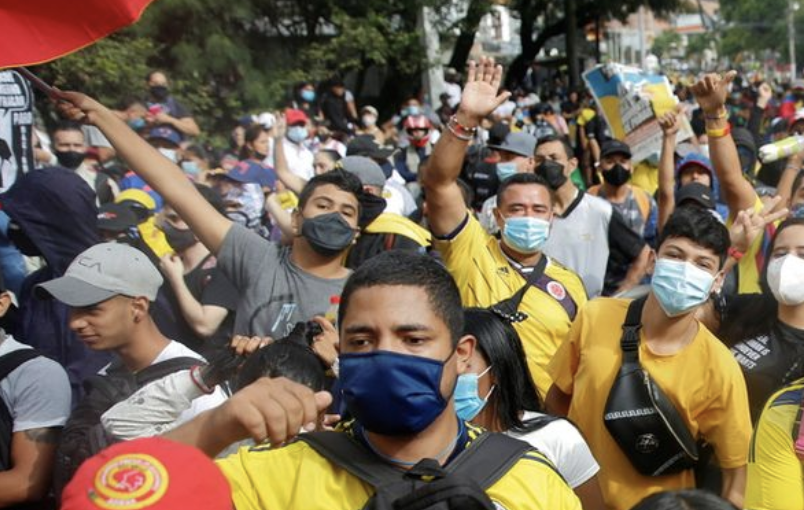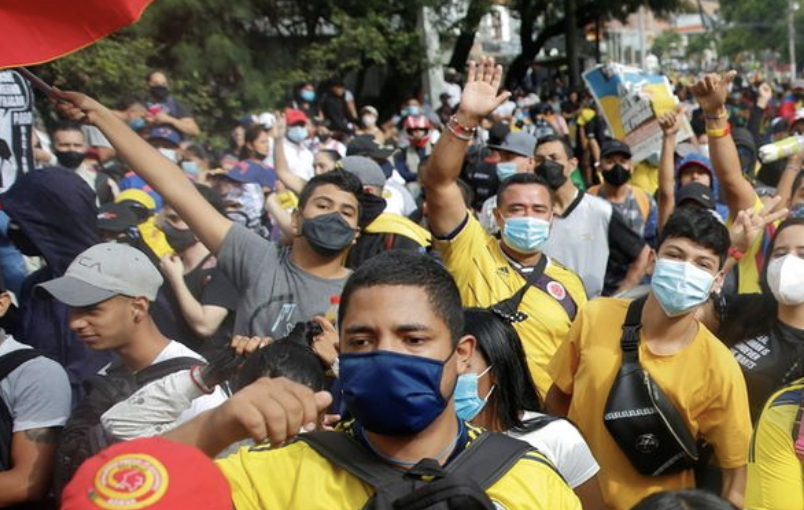
Jun 23, 2021 | Incidencia
La CIJ y 300 organizaciones de la sociedad civil, presentaron una declaración conjunta ante el Consejo de Derechos Humanos de Naciones Unidas expresando su preocupación sobre la situación de derechos humanos en Colombia, en el marco de la presentación del informe anual de la Alta Comisionada de la ONU para los Derechos Humanos.
Aqui sigue la declaración oral conjunta:
“Gracias Sra. Presidenta,
En nombre de las varias organizaciones firmantes, agradecemos el reporte de actividades de la Alta Comisionada, particularmente sobre Colombia. La situación en el país confirma la necesidad de continuar el monitoreo y la asistencia técnica de su oficina.
A ocho semanas de las jornadas de movilización en distintas ciudades del país, los asesinatos, el uso excesivo de la fuerza, los actos constitutivos de tortura y otros malos tratos, las desapariciones forzadas, la violencia sexual, las detenciones arbitrarias y los ataques, incluidos los ciberataques contra quienes ejercen su derecho a protestar constituyen flagrantes violaciones de derechos humanos. Los abusos se producen a pesar del fallo de la Corte Suprema de Justicia, que insta a la Fuerza Pública a no actuar de manera violenta, arbitraria y sistemática durante las manifestaciones y los llamamientos de mecanismos de derechos humanos a cesar estas violaciones.
Las protestas se vinculan a reivindicaciones estructurales ligadas a los derechos humanos, incluyendo la pobreza, la desigualdad, injusticias sociales crecientes, la impunidad, el racismo sistémico y la violencia sistemática contra las personas defensoras de derechos humanos, incluyendo líderes sociales, campesinas, sindicales e indígenas y la prensa. También se deben a la falta de la plena implementación del Acuerdo de Paz de 2016.
Exhortamos al Consejo a exigir a Colombia el cese del uso de violencia y el respeto del derecho a la protesta pacífica; a que investigue de forma independiente las violaciones a los derechos humanos cometidas en este contexto; a que acepte la visita de los procedimientos Especiales y a que apoye el logro de consensos sociales en torno a las demandas estructurales.
Finalmente, solicitamos a la Alta Comisionada, que por medio del monitoreo de su oficina en Colombia, elabore un reporte sobre las violaciones de derechos humanos cometidas durante las protestas.
Gracias Sra. Presidenta.”
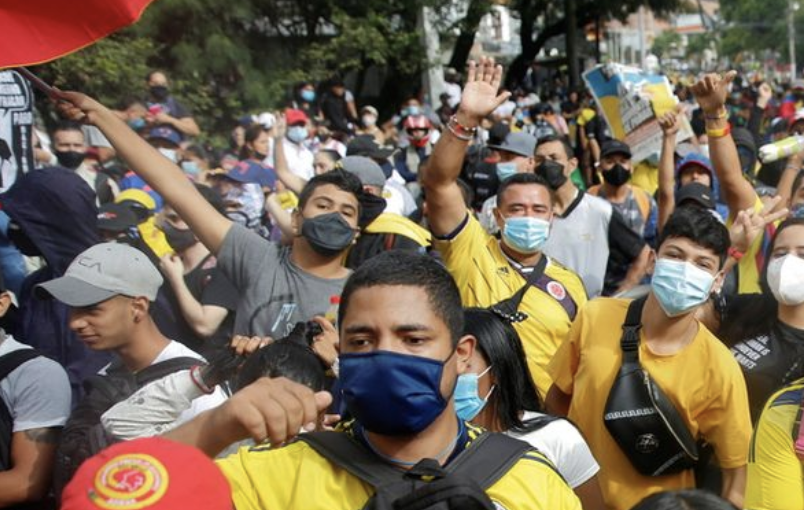
Jun 23, 2021 | Advocacy, Non-legal submissions
The ICJ joined over 300 civil society organisations in a statement to the UN Human Rights Council to express deep concern about the situation of human rights in Colombia during the presentation of the annual report of the UN High Commissioner for Human Rights.
The statement reads as follows:
“Thank you Madam President,
On behalf of the undersigned organisations, we thank the High Commissioner for her annual report, particularly on activities undertaken in Colombia. The situation in the country confirms the need for continued monitoring and provision of technical assistance by her Office
Throughout the eight weeks of mass protests that have spread to different cities throughout the country, we’ve seen killings, excessive use of force, acts amounting to torture and other ill-treatment, enforced disappearances, sexual violence, arbitrary detentions and attacks, including cyber-attacks against those exercising their right to protest, all of which constitute flagrant human rights violations. These violations are taking place in spite of a Supreme Court ruling ordering the security forces to refrain from acting violently and arbitrarily in a systemic manner during demonstrations, and calls by human rights mechanisms to cease these violations.
The protests are rooted in structural demands linked to the respect for human rights, and other concerns including poverty, inequality, growing social injustices, impunity, systemic racism and systematic violence against human rights defenders -including social, campesino, trade union and indigenous leaders and the press. They are also a result of the continued failure to fully implement the 2016 Peace Accord.
We urge the Council to call on Colombia to cease the use of violence and to respect the right to peaceful protest; to independently investigate human rights violations committed in this context; to accept the visit of the Special Procedures; and facilitate the building of social consensus around structural demands.
Finally, we ask the High Commissioner, through her Office in Colombia, to prepare a report on the human rights violations committed during the protests.
Thank you Madam President.”
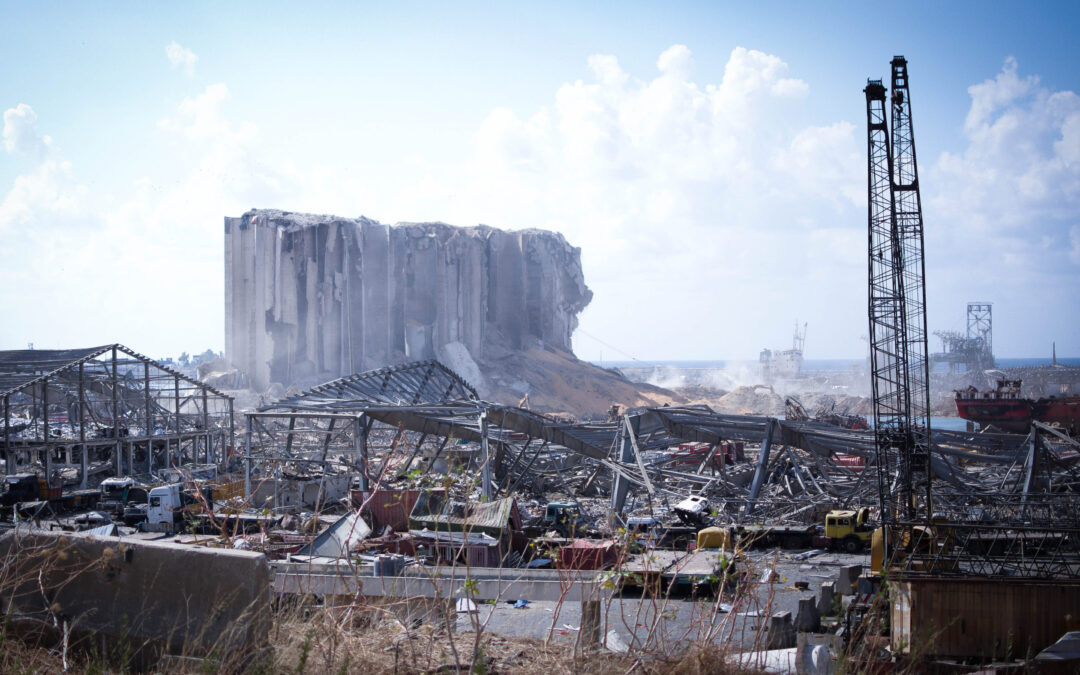
Jun 15, 2021 | Human Rights Council, News, Work with the UN
To the Permanent Representatives of Member and Observer States of the United Nations Human Rights Council,
Excellencies,
We, the undersigned Lebanese and international organizations, individuals, survivors, and families of the victims are writing to request your support in the establishment of an international, independent, and impartial investigative mission, such as a one-year fact-finding mission, into the Beirut port explosion of August 4, 2020. We urge you to support this initiative by adopting a resolution establishing such a mission at the Human Rights Council.
هذه الرسالة متاحة باللغة العربية أيضاً
On August 4, 2020, one of the largest non-nuclear explosions in history decimated the port and damaged over half the city. The Beirut port explosion killed 217 people, including nationals of Lebanon, Syria, Egypt, Bangladesh, Philippines, Pakistan, the Netherlands, Canada, Germany, France, Australia, and the United States. It wounded 7,000 people, of whom 150 acquired a physical disability, caused untold psychological harm, and damaged 77,000 apartments, forcibly displacing over 300,000 people. At least three children between the ages of two and 15 lost their lives. Thirty-one children required hospitalization, 1,000 children were injured, and 80,000 children were left without a home. The explosion affected 163 public and private schools and rendered half of Beirut’s healthcare centers nonfunctional, and it impacted 56% of the private businesses in Beirut. According to the World Bank, the explosion caused an estimated US$3.8-4.6 billion in material damage.
The right to life is an inalienable and autonomous right, enshrined in the International Covenant on Civil and Political Rights (ICCPR) (article 6), which Lebanon ratified in 1972. The Human Rights Committee, which interprets the ICCPR, has stated that states must respect and ensure the right to life against deprivations caused by persons or entities, even if their conduct is not attributable to the state. The Committee further states that the deprivation of life involves an “intentional or otherwise foreseeable and preventable life-terminating harm or injury, caused by an act or omission.” States are required to enact a “protective legal framework which includes criminal prohibitions on all manifestations of violence…that are likely to result in a deprivation of life, such as intentional and negligent homicide.”
The facts as currently known suggest that the storage of more than 2,700 tons of ammonium nitrate alongside other flammable or explosive materials, such as fireworks, in a poorly secured hangar in the middle of a busy commercial and residential area of a densely populated capital city likely created an unreasonable risk to life.
Since the explosion, a number of official documents were leaked to the press, including official correspondence and court documents that indicate customs, port, judicial, and government officials as well as military and security authorities had been warned about the dangerous stockpile of potentially explosive chemicals at the port on multiple occasions since 2013.
Further, the Human Rights Committee General Comment No. 36 on article 6 states: “The duty to protect by law the right to life also requires States parties to organize all State organs and governance structures through which public authority is exercised in a manner consistent with the need to respect and ensure the right to life, including by establishing by law adequate institutions and procedures for preventing deprivation of life, investigating and prosecuting potential cases of unlawful deprivation of life, meting out punishment and providing full reparation.” The investigations into violations of the right to life must be “independent, impartial, prompt, thorough, effective, credible, and transparent,” and they should explore “the legal responsibility of superior officials with regard to violations of the right to life committed by their subordinates.”
The impact and aftermath of the explosion also likely violated Lebanon’s international human rights obligations to guarantee the rights to education and to an adequate standard of living, including the rights to food, housing, health, and property. More notably, Lebanon can only uphold its obligation to provide effective remedy to the victims on the basis of a credible, effective, and impartial investigation whose findings would then be the basis for any effective remedy plan.
In August, 30 UN experts publicly laid out benchmarks, based on international human rights standards, for a credible inquiry into the August 4, 2020, blast at Beirut’s port, noting that it should be “protected from undue influence,” “integrate a gender lens,” “grant victims and their relatives effective access to the investigative process,” and “be given a strong and broad mandate to effectively probe any systemic failures of the Lebanese authorities.”
The domestic investigation into the Beirut blast has failed to meet those international standards. The ten months since the blast have been marked by the authorities’ obstruction, evasion, and delay. Human Rights Watch, Amnesty International, Legal Action Worldwide, Legal Agenda, and the International Commission of Jurists have documented a range of procedural and systemic flaws in the domestic investigation that render it incapable of credibly delivering justice, including flagrant political interference, immunity for high-level political officials, lack of respect for fair trial standards, and due process violations.
Victims of the blast and their relatives have been vocal in calling for an international investigation, expressing their lack of faith in domestic mechanisms. They claim that the steps taken by the Lebanese authorities so far are wholly inadequate as they rely on flawed processes that are neither independent nor impartial. This raises serious concerns regarding the Lebanese authorities’ ability and willingness to guarantee victims’ rights to truth, justice, and remedy, considering the decades-long culture of impunity in the country and the scale of the tragedy.
As we approach the one-year anniversary of the explosion, the case for such an international investigation has only strengthened. The Human Rights Council has the opportunity to assist Lebanon to meet its human rights obligations by conducting an investigative or fact-finding mission into the blast to identify whether conduct by the state caused or contributed to the unlawful deaths, and what steps need to be taken to ensure an effective remedy to victims.
The independent investigative mission should identify human rights violations arising from the Lebanese state’s failure to protect the right to life, in particular whether there were:
- Failures in the obligation to protect the right to life that led to the explosion at Beirut’s port on August 4, 2020, including failures to ensure the safe storage or removal of a large quantity of highly combustible and potentially explosive material;
- Failures in the investigation of the blast that would constitute a violation of the right to remedy pursuant to the rights to life.
The independent investigative mission should report on the human rights violated by the explosion, failures by the Lebanese authorities, and make recommendations to Lebanon and the international community on steps that are needed both to remedy the violations and to ensure that these do not occur in the future.
The Beirut blast was not an isolated or idiosyncratic incident. In the weeks following the explosion, two fires broke out at the port in scenes reminiscent of the fire that resulted in the Beirut blast, terrorizing the public. In February 2021, a German firm tasked with removing tons of hazardous chemicals left in Beirut’s port for decades warned that what they found amounted to “a second Beirut bomb.” If these substances caught fire, Beirut would have been “wiped out”, the interim port chief said.
It is time for the Human Rights Council to step in, heeding the calls of the families of the victims and the Lebanese people for accountability, the rule of law, and protection of human rights. The Beirut blast was a tragedy of historic proportions, arising from failure to protect the most basic of rights – the right to life – and its impact will be felt for far longer than it takes to physically rebuild the city. The truth of what happened on August 4, 2020, is a cornerstone in redressing and rebuilding after the devastation of that day.
The thousands of individuals who have had their lives upended and the hundreds of thousands of individuals who have seen their capital city disfigured in a most irrevocable way deserve nothing less.
List of signatories:
Organizations:
Access Center for Human Rights (Wousoul)
Accountability Now
ALEF – Act for Human Rights
Amnesty International
Anti-Racism Movement
Arab NGO Network for Development
Arab Reform Initiative
Basmeh & Zeitooneh
Baytna
Cairo Institute for Human Rights Studies (CIHRS)
Centre d’accès pour les droits de l’homme (ACHR)
Committee of the Families of the Kidnapped and Disappeared in Lebanon
Dawlaty
Gherbal Initiative
Gulf Centre for Human Rights
Helem
Human Life Foundation for Development and Relief (Yemen)
Human Rights Research League
Human Rights Solidarity (HRS)-Geneva
Human Rights Watch (HRW)
Human Rights Without Frontiers (HRWF)
Impunity Watch
International Commission of Jurists
Justice and Equality for Lebanon
Justice for Lebanon
Khaddit Beirut
Kulluna Irada
Lebanese-Swiss Association
Legal Action Worldwide
Legal Agenda
Liqaa Teshrin
Mada Network
Media Association for Peace (MAP)
Meghterbin Mejtemiin (United Diaspora)
Mwatana for Human Rights
National Youth for Lebanon Movement
PAX (Netherlands)
Peace Track Initiative
Project on Middle East Democracy (POMED)
Refugees=Partners Project
Samir Kassir Foundation
SEEDS for Legal Initiatives
Syrian Center for Media and Freedom of Expression – SCM
The Alternative Press Syndicate Group
The Foundation for Human Rights and Freedoms and Humanitarian Relief (IHH)
The International Center for Transitional Justice
The Lebanese Center for Human Rights (CLDH)
The Lebanese Diaspora Network (TLDN)
Tunisian League of Human Rights defense (LTDH)
UMAM Documentation & Research
Individuals:
Christophe Abi-Nassif – Lebanon Program Director, Middle East Institute
Nasser Saidi – President Nasser Saidi & Associates; Former Lebanese Minister of Economy & Industry
Randa Slim – Senior Fellow and Director of the Conflict Resolution and Track II Dialogues Program at the Middle East Institute
Survivors and Families of the Victims:
Alexandre Ibrahimcha, lost his mother Marion Hochar Ibrahimcha
Anthony, Chadia, Ava and Uma Naoum
Antoine Kassab, lost his father
Aya Arze Salloum
Carine Farran Sacy
Carine Tohme
Carine Zaatar
Carole Akiki
Cecilia and Pierre Assouad
Cedric el Adm, lost his sister
Charbel Moarbes
Charles Nehme, lost his father
Cybele Asmar lost her aunt Diane Dib
Fouad Rahme, lost his father
Georges Zaarour, lost his brother
Jean-Marc Matta
Jihad Nehme
Joanna Dagher Hayek
Karine Makhlouf, lost her mother
Karine Mattar
Laura Khoury
Lyna Comaty
Mireille el Khoury, lost her son
Myrna Mezher Helou, lost her mother
Nadine Khazen, lost her mother
Nicolas and Vera Fayad
Nicolas Dahan
Olga Kavran
Patrice Cannan, lost his brother
Patricia Haddad, lost her mother
Paul and Tracy Naggear, lost their daughter Alexandra Naggear
Reina Sfeir
Rénié Jreissati
Rima Malek
Rony Mecattaf
Sara Jaafar
Sarah Copland, lost her son Isaac Oehlers
Tania Daou Alam, lost her husband
Tony Najm, lost his mother
Vartan Papazian, lost his daughter-in-law
Vicky Zwein
Zeina Sfeir
Families of the following firefighters:
Charbel Hetty
Charbel Karam
Elie Khouzamy
Joe Akiki
Joe Andoun
Joe bou Saab
Joe Noun
Joseph Merhy
Joseph Roukoz
Misal Hawwa
Najib Hetty
Ralph Mellehy
Ramy Kaaky
Sahar Fares
Contact:
Said Benarbia, Director of the ICJ’s Middle East and North Africa programme, email: said.benarbia@icj.org phone number: +41 79 878 35 46
Asser Khattab, Research and Communications Officer at the ICJ’s Middle East and North Africa programme, email: Asser.khattab(a)icj.org
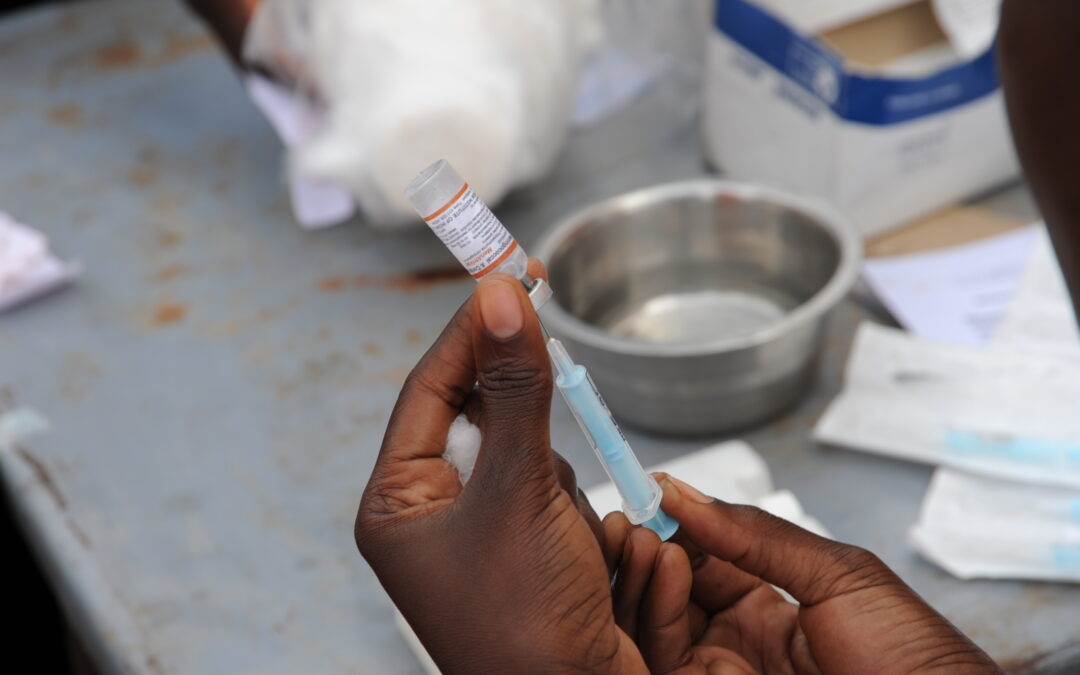
Mar 29, 2021 | Editorial, Incidencia, Noticias
Por Tim Fish Hodgson (Asesor Legal en derechos económicos, sociales y culturales de la Comisión Internacional de Juristas) y Rossella De Falco (Oficial de Programa sobre el derecho a la salud de la Iniciativa Global para los Derechos Económicos, Sociales y Culturales).
Históricamente, las pandemias han sido catalizadoras importantes de cambio social. En palabras del historiador sobre pandemias, Frank Snowden, “las pandemias son una categoría de enfermedad que parecen sostener un espejo en el que se puede ver quiénes somos los seres humanos en realidad”. Por el momento, mirarse en ese espejo sigue siendo una experiencia lamentablemente desagradable.
Los órganos de los tratados y los procedimientos especiales de las Naciones Unidas, la Organización Mundial de la Salud (OMS), el Programa Conjunto de las Naciones Unidas sobre el VIH/Sida (ONUSIDA) y numerosas organizaciones locales, regionales e internacionales de derechos humanos han producido múltiples declaraciones, resoluciones e informes que lamentan los impactos de la COVID-19 en los derechos humanos, en casi todos los aspectos de la vida, para casi todas las personas del mundo. El último documento relevante que se ha expedido sobre este tema es una resolución adoptada por el Consejo de Derechos Humanos. Esta resolución hace referencia a “Asegurar el acceso equitativo, asequible, oportuno y universal de todos los países a las vacunas para hacer frente a la pandemia de enfermedad por coronavirus (COVID-19)”. La resolución fue adoptada el 23 de marzo de 2021.
Entre las normas y estándares de derechos humanos que guían los análisis sobre los efectos de la COVID-19, se debe resaltar el derecho de toda persona al disfrute del más alto nivel posible de salud física y mental. Este derecho se encuentra consagrado en el artículo 12 del Pacto Internacional de Derechos Económicos, Sociales y Culturales (PIDESC), que tiene 171 Estados Parte. El derecho a la salud, en los términos que está consagrado en el PIDESC, impone a los Estados la obligación de tomar todas las medidas necesarias para garantizar “la prevención y el tratamiento de las enfermedades epidémicas, endémicas, profesionales y de otra índole”. Adicionalmente, respecto a el acceso a medicinas, el artículo 15 del PIDESC establece el derecho de todas las personas de “gozar de los beneficios del progreso científico y de sus aplicaciones”.
A pesar de estas obligaciones legales, a finales de febrero de 2021, el Secretario General de las Naciones Unidas, António Guterres, se sintió obligado a señalar el surgimiento de “una pandemia de violaciones y abusos a los derechos humanos a raíz de la COVID-19”, que incluye, pero se extiende más allá de las violaciones del derecho a la salud. El impacto de la COVID-19 en los derechos humanos ha, y continúa siendo, omnipresente. La gravedad de la situación ha sido perfectamente capturada en las palabras de la activista trans de Indonesia, Mama Yuli, quien al ser preguntada por una periodista sobre su situación y la de otros afirmó que era “como vivir como personas que mueren lentamente”.
Vacunas para unos pocos, pero ¿qué pasa con la mayoría?
Resulta decepcionante que, en lugar de ser un símbolo de esperanza de la luz al final del túnel de la pandemia, la vacuna de la COVID-19 se ha convertido rápidamente en otra clara ilustración de la pandemia paralela de violaciones y abusos a los derechos humanos, descrita por Guterres. El desastroso estado de la producción y distribución de la vacuna COVID-19 en todo el mundo – incluso dentro de países donde las vacunas ya están disponibles– es ahora a menudo descrito por muchos activistas, incluyendo de manera significativa la campaña de “Vacunas para la Gente” (People’s Vaccine campaign), como “nacionalismo de vacunas” y vacunas de lucro que ha producido un “apartheid de vacunas”.
Lo anterior significa, desde una perspectiva de derechos humanos, que los Estados a menudo han arreglado sus propios asuntos de una manera que es perjudicial para el acceso a las vacunas en otros países. Esto, a pesar de las obligaciones legales extraterritoriales de los Estados de, al menos, evitar acciones que previsiblemente resultarían en el menoscabo de los derechos humanos de las personas por fuera de sus territorios.
Es importante enfatizar que solo han pasado unos cuatro meses desde que comenzaron las primeras campañas de vacunación masiva en diciembre de 2020. Al momento en que este artículo se escribe, se habían vacunado aproximadamente 450 millones de personas en todo el mundo. No obstante, mientras que en muchas naciones africanas, por ejemplo, no han administrado una sola dosis, en América del Norte se han administrado 23 dosis de la vacuna COVID-19 por cada 100 personas. En el caso de Europa, la cifra es 13/100. La cifra disminuye drásticamente en el Sur global con 6.4/100 en América del Sur; 3.8/100 en Asia; 0.7/100 en Oceanía y apenas 0.6/100 en África.
Vacunas, obligaciones estatales y responsabilidades empresariales
La distribución inadecuada y desigual de las vacunas tiene diversas causas.
La primera causa es la naturaleza generalmente disfuncional del sistema de salud en todo el mundo. Lo cual se debe a, lo que el Comité de Derechos Económicos, Sociales y Culturales (Comité DESC), en su primera declaración sobre COVID-19 de abril de 2020, describió como “decenios de inversión insuficiente en los servicios de salud pública y otros programas sociales”. Las increíbles desigualdades causadas por la privatización de los servicios, instalaciones y bienes de salud, en ausencia de una regulación suficiente, están bien documentadas, tanto en el Norte Global como en el Sur Global.
La segunda causa son los obstáculos para acceder a la vacuna que han sido creados y mantenidos por los Estados, de manera individual o colectiva, a través de los regímenes de propiedad intelectual. Esto no se debe a la falta de lineamientos o mecanismos legales para garantizar la aplicación flexible de las protecciones de la propiedad intelectual a favor de la protección de la salud pública y la realización del derecho a la salud. Sobre este punto, en particular, hay que mencionar el Acuerdo sobre los Aspectos de los Derechos de Propiedad Intelectual relacionados con el Comercio (Acuerdo ADPIC o, en inglés, TRIPS agreement), un acuerdo legal internacional celebrado por miembros de la Organización Mundial del Comercio (OMC) que establece estándares mínimos para la protección de los derechos de propiedad intelectual.
Los Estados están explícitamente autorizados para interpretar las protecciones de los derechos de propiedad intelectual “a la luz del objeto y fin del” Acuerdo ADPIC. Por lo tanto, los Estados conservan el derecho de “conceder licencias obligatorias y la libertad de determinar las bases sobre las cuales se conceden tales licencias” en el contexto específico de emergencias de salud pública. Esta no es la primera vez que una epidemia ha requerido que se realicen acuerdos flexibles para garantizar un acceso rápido, universal, asequible y adecuado a medicamentos y vacunas vitales para salvar vidas.
Es por eso que, la gran mayoría de países y un número abrumador de actores de la sociedad civil han apoyado el requerimiento de Sudáfrica y de India para que la OMC emita una exención temporal (waiver) en la aplicación de los derechos de propiedad intelectual para “los diagnósticos, aspectos terapéuticos y vacunas” de la COVID-19. Este requerimiento ha sido formalmente apoyado por distintos expertos independientes de los procedimientos especiales del Consejo de Derechos Humanos. De igual manera, el 12 de marzo de 2021, a través de una declaración, el requerimiento recibió el respaldo enfático del Comité DESC. Adicionalmente, se debe mencionar que ya existen precedentes en la expedición de exenciones temporales sobre derechos de propiedad intelectual. Por ejemplo, la OMC ha aplicado una excepción temporal hasta 2033, para al menos los países menos desarrollados, que los exceptúa de aplicar las reglas de propiedad intelectual sobre productos farmacéuticos y datos clínicos.
Decepcionantemente, no se había secado la tinta de la declaración del Comité DESC, cuando, ignorando explícitamente todas estas recomendaciones, la excepción temporal fue bloqueada por una coalición de las naciones más ricas, muchas de las cuales ya tienen un acceso sustancial y avanzado a las vacunas. Es importante destacar que las recomendaciones del Comité DESC no se formularon por motivos políticos, sino como una manera de cumplir con la obligación establecida en el PIDESC de que “la producción y distribución de vacunas debe ser organizada y apoyada por la cooperación y la asistencia internacional”.
La reciente resolución del Consejo de Derechos Humanos, que fue liderada por Ecuador y el movimiento de Estados no alineados, brinda alguna esperanza de que se altere el actual curso de colisión hacia el desastre. La resolución, que pide el acceso a las vacunas sea “equitativo, asequible, oportuno y universal para todos los países”, reafirma el acceso a las vacunas como un derecho humano protegido y reconoce abiertamente la “asignación y distribución desigual entre países”.
La resolución procede a llamar a todos los Estados, individual y colectivamente, para que se “eliminen los obstáculos injustificados que restringen la exportación de las vacunas contra la COVID-19” y para que “faciliten el comercio, la adquisición, el acceso y la distribución de las vacunas contra la COVID-19” para todos.
Sin embargo, a pesar de las protestas de las organizaciones de la sociedad civil, que participaron en las deliberaciones sobre la resolución, esta solo reafirma el derecho de los Estados a utilizar las flexibilidades del Acuerdo ADPIC, en lugar de respaldar tales medidas como una buena práctica para cumplir las obligaciones de los Estados en materia de derechos humanos. En ese sentido, la resolución adopta un enfoque tibio, en tal vez, la cuestión más apremiante para garantizar el acceso a las vacunas. Este enfoque sigue los principios del comercio internacional, mientras que, irónicamente, ignora los estándares de derechos humanos, que debería considerar por ser una resolución emanada del Consejo de Derechos humanos. Como consecuencia, el enfoque de la resolución en la cuestión apremiante del Acuerdo ADPIC es inconsistente con la perspectiva de derechos humanos, que si tiene el resto de la resolución. Así las cosas, sorprendentemente, la resolución se queda corta y ni siquiera llega a insistir en que los Estados cumplan con sus obligaciones internacionales de derechos humanos establecidas desde hace mucho tiempo.
La resolución tampoco, inexplicablemente, aborda las responsabilidades corporativas, incluidas las de las empresas farmacéuticas, de respetar el derecho a la salud en términos de los Principios Rectores de las Naciones Unidas sobre Empresas y Derechos Humanos, así como el deber correspondiente de los Estados de proteger el derecho a la salud mediante la adopción de medidas regulatorias adecuadas.
La tercera causa, que se encuentra conecta a todo lo anterior, es el fracaso general de los Estados de cumplir de manera plena y adecuada sus obligaciones en materia de derechos humanos en el contexto de las respuestas que han dado a la pandemia de la COVID-19. La redacción sutil pero importante del ejercicio de las flexibilidades del Acuerdo ADPIC como un “derecho de los Estados”, en vez de una forma óptima de cumplir una obligación, expone que existe una asincronía. Específicamente, la manera en cómo los encargados de la formulación de políticas y los asesores jurídicos de los Estados ven y comprenden los derechos humanos, no se alinea con las obligaciones que tienen los Estados en materia de derechos humanos. Obligaciones que, por lo demás, los Estados han asumido de manera voluntaria al convertirse en parte de tratados como el PIDESC.
Un momento crítico: no tiene que ser de esta manera
Como predijo el perspicaz trabajo de Snowden, la pandemia de la COVID-19 representa un momento crítico en la historia de la humanidad. A los Estados, colectiva e individualmente, se les presenta una oportunidad única para sentar un precedente y comenzar a abordar seriamente las causas fundamentales de la desigualdad y la pobreza que prevalecen en todo el mundo.
Tomar la decisión correcta y adoptar una posición moral sobre la importancia del acceso a las vacunas COVID-19 es tanto práctica y simbólicamente importante para que estos esfuerzos tengan éxito. Las vacunas deben ser aceptadas y reconocidas como un bien mundial de salud pública y derechos humanos. Las empresas privadas tampoco deben obstaculizar el acceso equitativo y no discriminatorio a las vacunas para todas las personas.
Para que esto suceda, se requiere un liderazgo decidido de las instituciones internacionales de derechos humanos como el Consejo de Derechos Humanos, la Asamblea General de las Naciones Unidas y la OMC. Desafortunadamente, en la actualidad, no se ha hecho lo suficiente y la politiquería y el interés privado continúan prevaleciendo sobre los principios y el bien público. Hasta que esto cambie, muchas personas en todo el mundo seguirán existiendo, “viviendo como personas que mueren lentamente”. No tiene que ser de esta manera.
